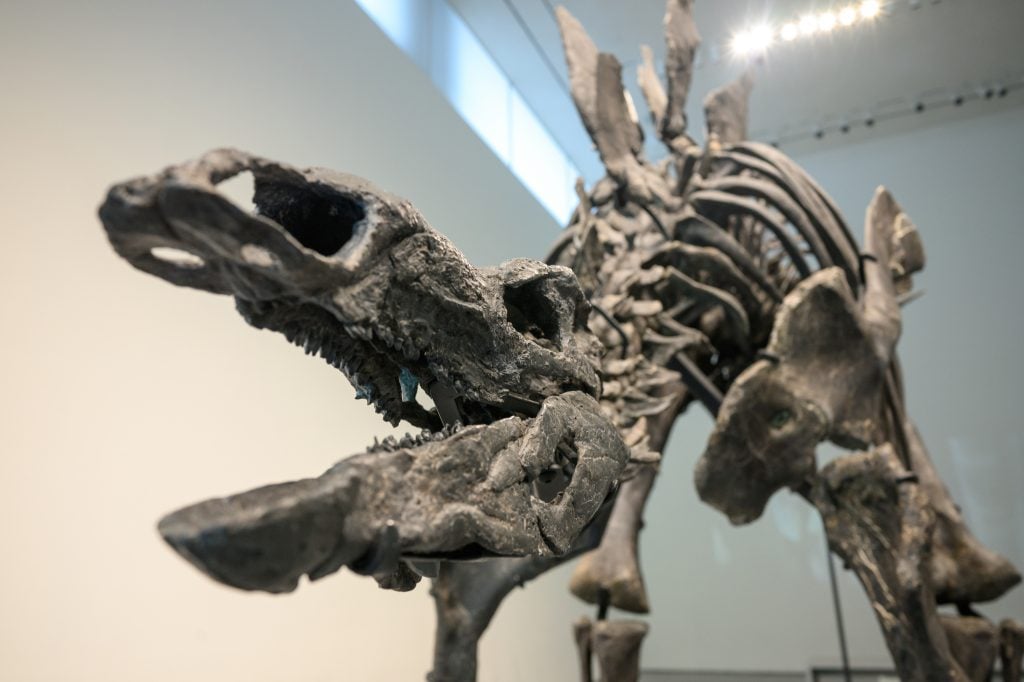A newly excavated stegosaurus skeleton, christened “Apex,” sold for a mammoth $44.6 million at Sotheby’s New York. The result set a new dinosaur auction record as the most expensive fossil ever to hit the block.
The sale smashed expectations, with a 643.3 percent increase from the top end of the $4 million to $6 million presale estimate. It also easily eclipsed the previous dinosaur auction record of $31.8 million, set in 2020, to become the most expensive lot at a natural history auction.
That number was achieved by Stan, hailed as the largest and most complete T. rex fossils ever excavated. (Stan also performed well above expectations, with an estimate of just $6 million to $8 million.)
“Apex lived up to its name today, inspiring bidders globally to become the most valuable fossil ever sold at auction,” said Cassandra Hatton, Sotheby’s global head of science and popular culture, in a statement. “I am thrilled that such an important specimen has now taken its place in history, some 150 million years since it roamed the planet.”
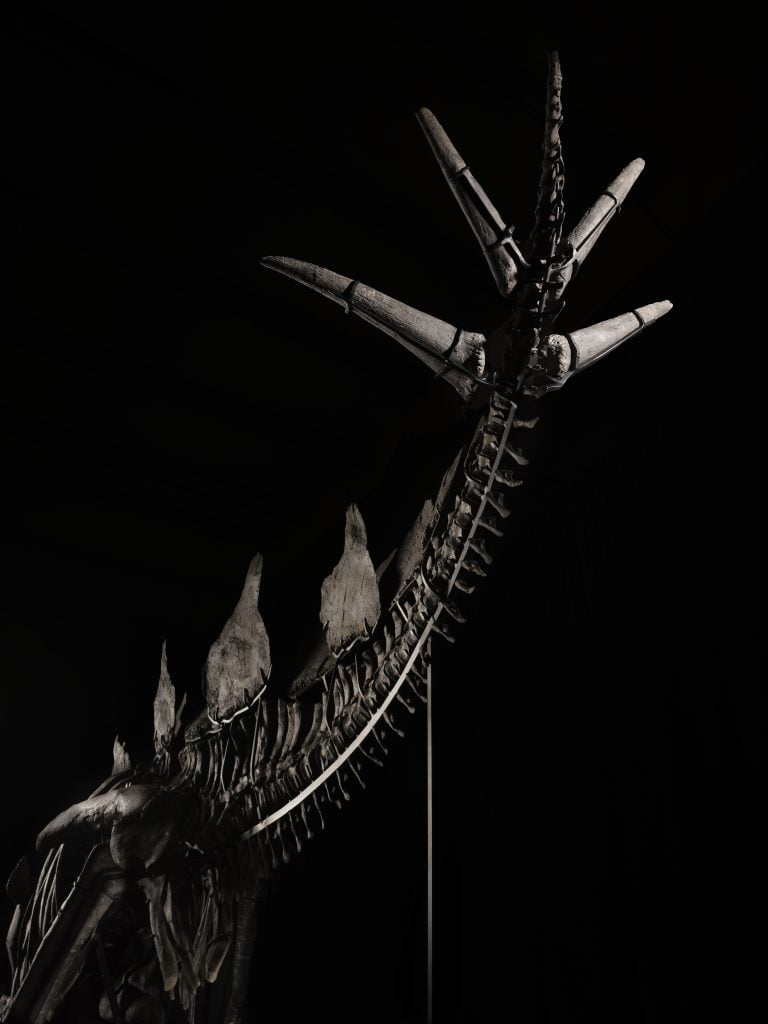
Apex, the Stegosaurus skeleton heading to auction at Sotheby’s. Photo: Matthew Sherman, courtesy of Sotheby’s.
The stegosaurus hails from the Morrison Formation, a well-known fossil site near the Utah border in Northwest Colorado. Part of the site is owned by the National Park Service and is known as Dinosaur National Monument, but other fossil-rich land in the nearby town of Dinosaur is privately owned.
Jason Cooper, a commercial paleontologist, discovered Apex on his 100-acre property in Dinosaur on his 45th birthday in 2022. He worked closely with Sotheby’s from the time of the excavation to bring the skeleton to market.
The record sale marked the first time a stegosaurus, one of the most recognizable and beloved dinosaurs, has come to auction.
The mounted skeleton, which dates to the Late Jurassic period, some 161 million to 146 million years ago, is almost 27 feet long and 11 feet tall. Its size indicates this was an adult stegosaurus, with signs of arthritis suggesting advanced age.
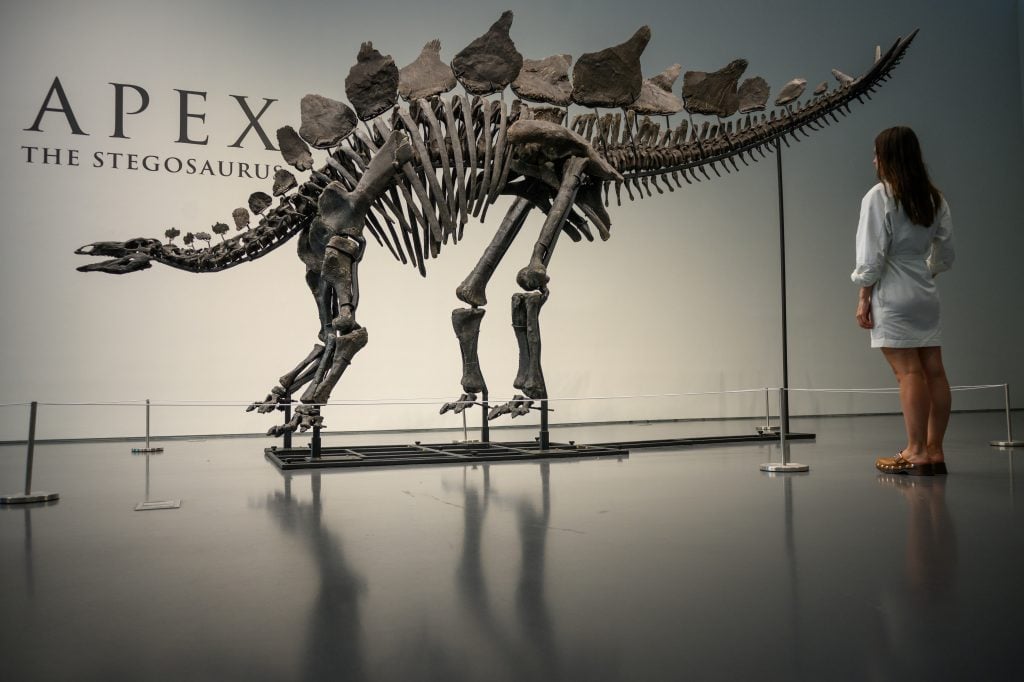
The “Apex” Stegosaurus fossil on display at Sotheby’s New York for the “Geek Week” sales. Photo by Alexi Rosenfeld/Getty Images.
Apex is about a third larger than the best-known stegosaurus specimen, Sophie, from the National History Museum in London.
The specimen is approximately 70 percent complete, with 254 pieces of fossil bone, and 3D-printed and sculpted elements making up the rest of the 319-odd pieces elements. The bones were initially encased in rock, and had to be painstakingly excavated and cleaned using sand-blasting jets and pneumatic chisels.
“This particular specimen is really, really exciting because it is enormous,” Hatton said in a YouTube video. “It has an incredible level of preservation.”
The dinosaur is mounted on a custom steel armature with individual brackets for each piece, facilitating both transportation and scientific study of the specimen. The mount is also designed to allow the head to face in either direction, depending on the room in which it is being displayed.
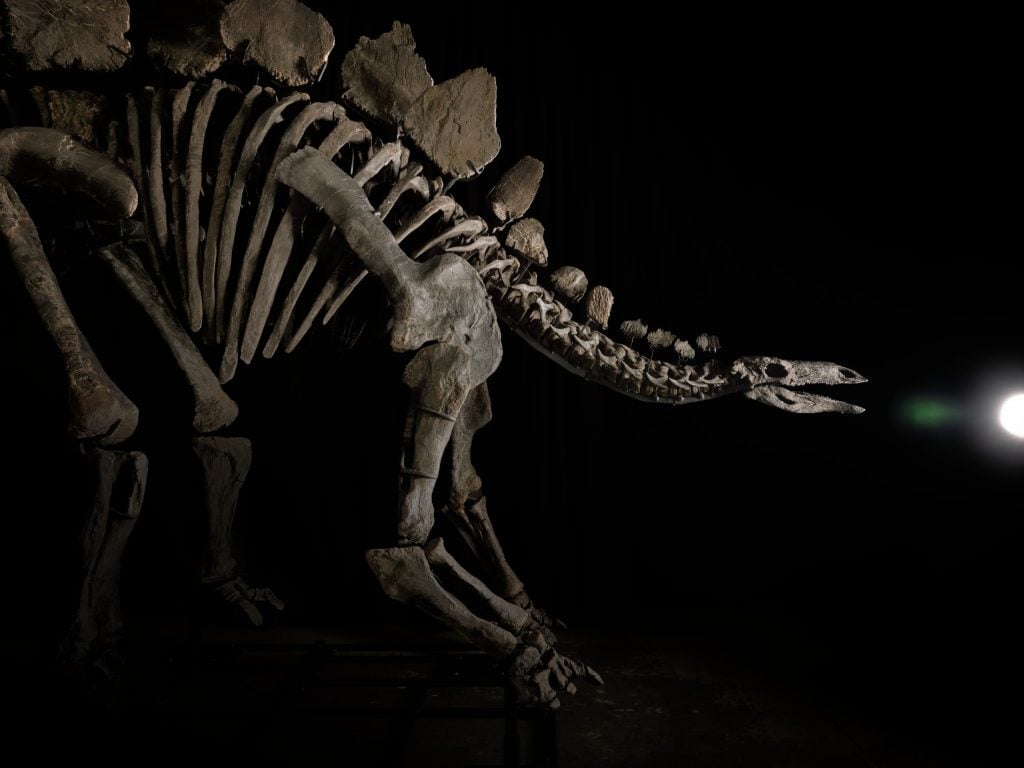
Apex, the Stegosaurus skeleton heading to auction at Sotheby’s. Photo: Matthew Sherman, courtesy of Sotheby’s.
The private sale of dinosaur skeletons is a controversial subject. Some scientists and paleontologists believe that all significant specimens should be owned by museums and public institutions where they can be studied by experts and appreciated by the public.
Cooper, for his part, has discovered several fossil specimens that he has ultimately placed in museums. And Stan sold to the nation of Abu Dhabi, which intends to display it at its forthcoming natural history museum on Saadiyat Island.
Space constraints limit the number of private collectors who can realistic house entire dinosaur specimens—but few museums, if any, have the budget for a $44.6 million acquisition. The auction house has not shared any details about the winning bidder for Apex.
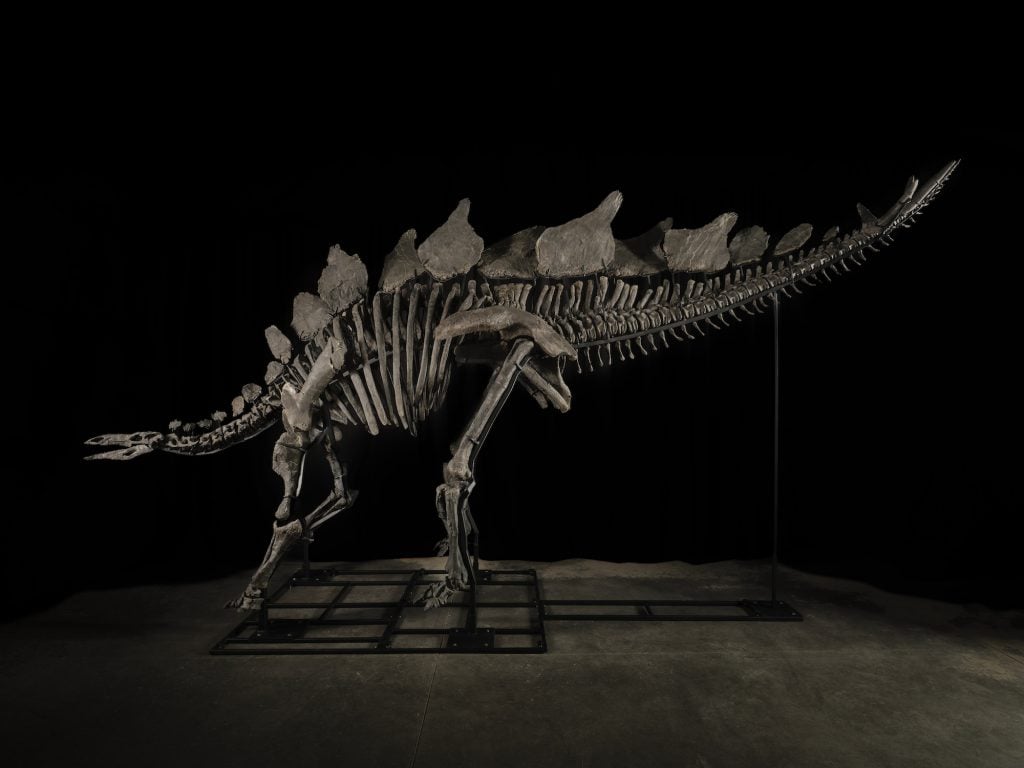
‘Apex,’ a massive 150-million-year-old skeleton of a stegosaurus offered at Sotheby’s. Photo by Matthew Sherman. Photo courtesy of Sotheby’s.
“The collectors and philanthropists who purchase these dinosaurs might enjoy them at home for a few years, but then they have the fossils named after them and give them to institutions,” Cooper told the BBC.
Despite experts’ concerns about the ethics of such sales, dinosaur auctions have been a reliable hit at auction since the 1997 sale of Sue the T. Rex for $8.3 million. There have been a glut of dinosaur fossil sales in recent years.
In 2022 alone, there was a $12.4 million velociraptor skeleton, a $6.1 million Gorgosaurus, and a $6.1 million T. Rex skull nicknamed Maximus—although Christie’s New York also withdrew a T. Rex skeleton estimated at $25 million that year over complaints its bones were largely replicas.
Follow Artnet News on Facebook:
References: this article is based on content originally published by on Artnet. You can read the full article here.
